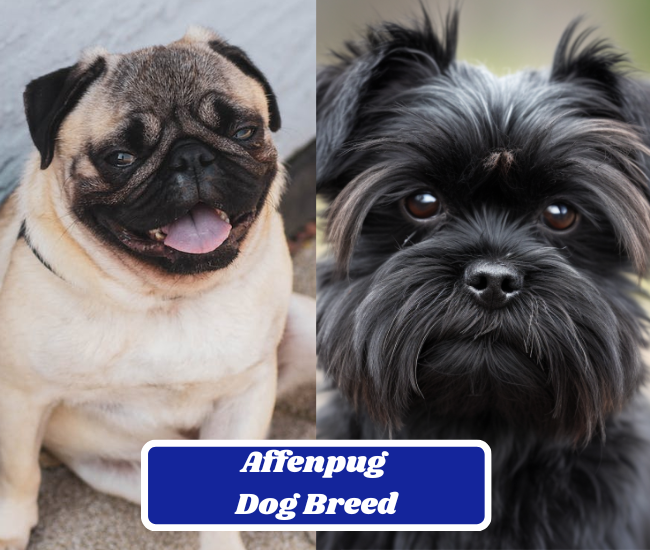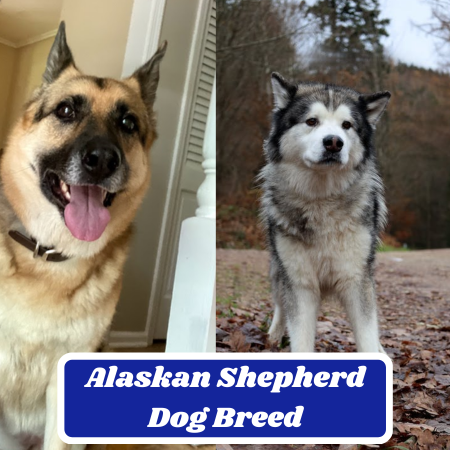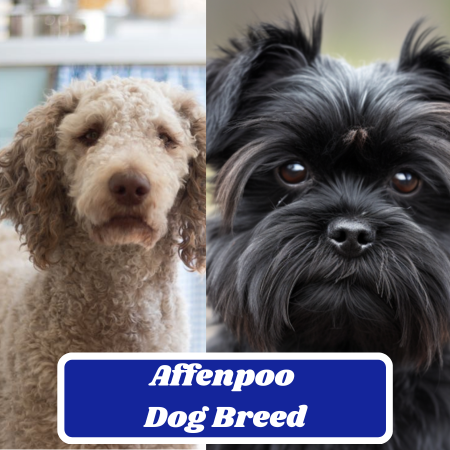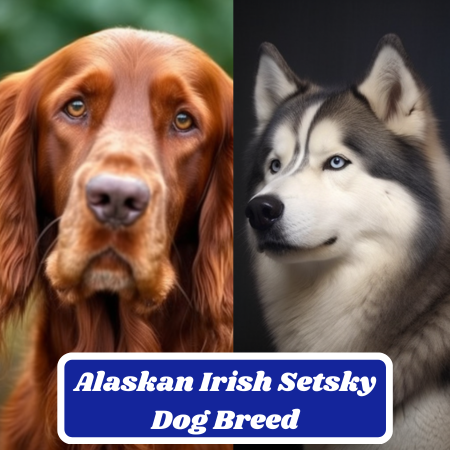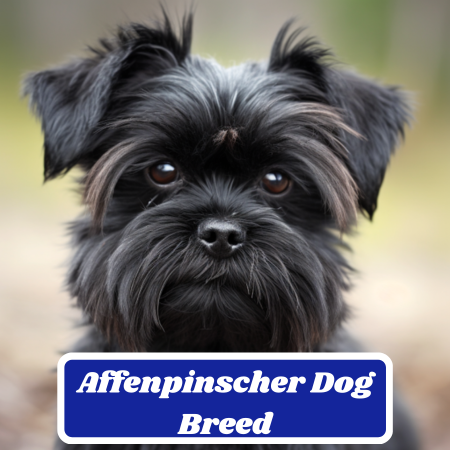Akita Pit Dog Breed: Information, Appearance, and Characteristics
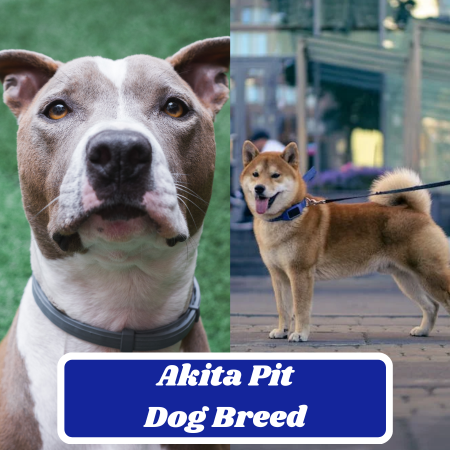
| Height | Weight | Lifespan | Colors | Temperament |
|---|---|---|---|---|
| 16 24 inches | 30 -80 pounds | 9- 12 years | black, brown, or fawn to brindle or white with patches of color | Active, strong, protective, loving |
Akita Pit: A Comprehensive Guide to a Remarkable Breed
The Akita Pit: A Hybrid Breed with Unique Characteristics
If you’re in the market for a new dog, there are a lot of breeds to choose from.
However, if you’re looking for a dog that is loyal, loving, and fiercely protective of its family, you might want to consider an Akita Pit.
This breed is unique in many ways and has a fascinating history that is worth exploring.
A Brief Overview of the Akita Pit Dog Breed
Akita Pits are a crossbreed between an American Pitbull Terrier and an Akita Inu.
They can weigh up to 80 pounds and stand up to two feet tall at the shoulder.
They have thick fur that can come in many different colors, including black, brown, red, gray or even white. One of the most notable characteristics of this breed is their loyalty.
They are extremely devoted to their owners and will do anything to protect them.
This makes them excellent guard dogs but also means they need proper socialization early on to know when it’s appropriate to be protective.
The Importance of Understanding Breed Characteristics
Understanding the characteristics of any breed is crucial before bringing one into your home or family.
Knowing what kind of temperament your new pet may have can prepare you for what kind of training may be needed and how much attention they’ll require.
In addition, researching specific needs such as diet requirements or exercise routines can ensure that your pet remains healthy throughout its life.
For example, since Akitas were originally bred in Japan, where food was scarce during certain times of the year; they have developed an instinctual habit called “food guarding.”
This means that if there isn’t enough food available for everyone in their pack or family, they will fight over it – something important to remember when feeding your Akita Pit.
Overall, the more you know about your dog breed’s specific characteristics and needs, the better equipped you’ll be to provide for them.
So, before bringing an Akita Pit (or any other dog) into your life, please research thoroughly! There are hundreds of dog breeds, so make sure to find the one that is best for your family!
The Origins of the Akita Pit Dog Breed
The Akita Pit dog breed is a relatively new hybrid breed, created by breeding an American Pit Bull Terrier with an Akita.
The purpose of this crossbreeding was to create a dog that combined the tenacity and courage of the Pit Bull with the loyalty and protective nature of the Akita.
While it’s difficult to pinpoint exactly when this crossbreed originated, it’s believed to have first appeared in the United States sometime in the late 20th century.
A Brief Historical Context and Significance
The history of both parent breeds can provide some insight into what makes up an Akita Pit.
The American Pit Bull Terrier was originally bred for bull-baiting and fighting, but it has become a popular family pet known for its loyalty and affection towards humans over time.
Meanwhile, the Akita is a Japanese breed known for its bravery, strength, and devotion to its family.
Akitas are considered one of Japan’s national treasures and have been used as hunters, guardians, and even as symbols of good luck.
When you combine these two breeds into an Akita Pit dog, you get a loyal companion with strong protective instincts who is also highly trainable.
This hybrid breed has quickly gained popularity in recent years due to its affectionate nature towards families while also being able to defend them if necessary.
| Breed Characteristics | |
|---|---|
| Temperament | |
| Good with Children | ⭐️⭐️⭐️☆☆ |
| Sociability with Dogs | ⭐️⭐️⭐️☆☆ |
| Friendliness towards Strangers | ⭐️⭐️⭐️☆☆ |
Physical Characteristics of the Akita Pit
Size, Weight, and Height of Akita Pit Dogs
The Akita Pit is a medium-sized dog breed that can weigh anywhere from 30 to 80 pounds. They stand between 16 to 24 inches tall at the shoulder and have a lean, muscular build.
Despite their size, they are agile and powerful dogs, making them great working dogs.
Males are usually larger than females, with an average weight of around 80 pounds while females weigh around 60 pounds.
It’s important to note that these figures are just averages and can vary depending on the individual dog’s genetics.
Coat Colors and Textures
The Akita Pit has a short, dense coat that lies flat against the skin.
Their coat colors can range from black, brown, or fawn to brindle or white with patches of color. Some may have a solid color while others have multiple colors on their coat.
One unique feature about their coat is that they shed heavily twice a year during the spring and fall seasons.
During this time, daily brushing is recommended to keep their shedding under control.
Unique Physical Features
One unique physical feature of Akita Pit dogs is the shape of their ears. They have erect triangular ears, which gives them an alert expression.
Another distinguishing characteristic is their broad head with a strong jawlines, which makes them look very intimidating.
Their eyes are almond-shaped, which come in brown or hazel color, giving them an intense stare that matches their powerful personality.
In addition to this fierce look, they also have muscular legs and high-set tails, giving them an upright posture which further adds to their confident attitude towards other animals and people alike.
Temperament and Personality Traits
| Breed Characteristics (Higher = More Suited) | |
|---|---|
| Flexibility | |
| Apartment Living | ⭐️⭐️⭐️☆☆ |
| Good For New Owners | ⭐️☆☆☆☆ |
| Prefers Cold / Winter Dog | ⭐️⭐️⭐️☆☆ |
| Prefers Warm / Summer Dog | ⭐️⭐️⭐️☆☆ |
| Physical Needs | ⭐️⭐️⭐️⭐️☆ |
| Energy Level | ⭐️⭐️⭐️☆☆ |
| Exercise Needs | At Least 35 Minutes / Day |
Behavioral Tendencies
Akita Pit dogs feature a unique blend of their parent breeds’ personalities. These dogs are known for their loyalty, protectiveness, and high energy levels.
They are also intelligent, which can make them strong-willed at times.
Due to their protective nature, Akita Pit dogs may be wary of strangers and exhibit aggressive behavior towards them.
Socializing them early on in life is important to prevent this behavior from developing.
However, with proper training and socialization techniques, this breed can be friendly towards strangers as well.
When it comes to other animals within the household or those encountered during walks or visits to the park, Akita Pit dogs may exhibit dominant tendencies due to their strong personalities.
Training can help minimize such behavior by teaching them how to interact properly with other pets.
Socialization Needs
From a young age, Akita Pit dogs require exposure to various people and situations in order to develop good socialization skills.
This breed is very loyal and protective of its family members but may show aggression towards outsiders if not adequately socialized.
Enrolling your puppy in a puppy training class is an excellent way to introduce your dog into new environments while also learning obedience commands from an expert trainer.
Taking your dog for walks around town or frequenting dog parks will also help expose him/her to new people and pets on a regular basis.
It’s essential that you introduce positive reinforcement training methods while socializing your Akita Pit dog so that they learn that good behavior around other people and animals will result in rewards rather than negative consequences.
Akita Pit Training and Exercise Needs
| Trainability | Rating |
|---|---|
| Ease To Train | ⭐️⭐️⭐️☆☆ |
| Smart | ⭐️⭐️⭐️⭐️☆ |
| Prey Motivation & Frequency | ⭐️⭐️⭐️☆☆ |
| Loudness – Barking / Howling (higher = louder) | ⭐️⭐️⭐️☆☆ |
Akita Pit dogs require consistent training from an early age because of their stubborn nature. Positive reinforcement techniques like treats or toys work well during training sessions because they motivate the dog without resorting to punishment.
Establishing yourself as the alpha in the household while training these dogs is important, as they are naturally dominant animals.
This can be done by consistently enforcing rules and boundaries, such as not allowing them to jump up on people or furniture.
Daily exercise is also a crucial part of training for Akita Pit dogs, as it helps burn off their excess energy and keep them mentally stimulated.
Without proper exercise and stimulation, they may become bored and destructive.
Overall, Akita Pit dogs are intelligent animals with unique personalities that require consistent training and socialization techniques from an early age.
With proper guidance and love, this breed can make excellent pets for active families willing to put in the time and effort necessary for their care.
Positive Reinforcement Techniques for Training
When it comes to training your Akita Pit, positive reinforcement is the way to go. This means rewarding your dog for good behavior instead of punishing them for bad behavior.
Positive reinforcement teaches your dog what you want them to do, rather than just what you don’t want them to do. One of the most effective positive reinforcement techniques is using treats.
When your Akita Pit does something you want them to do, such as sitting on command or going potty outside, reward them with a treat and lots of praise. This will encourage your dog to repeat that behavior in the future.
Another technique is clicker training. A clicker is a small device that makes a clicking noise when pressed.
You can use this noise as a marker for good behavior and then follow up with a treat and praise.
Clicker training can be especially helpful in teaching complex behaviors such as agility courses or obedience competitions.
Common Mistakes to Avoid During Training
While positive reinforcement techniques are effective, owners make some common mistakes during training that can hinder progress.
One mistake is not being consistent with commands or rewards. Your Akita Pit needs clear signals about what behaviors are rewarded and what actions are not allowed.
If you’re inconsistent, they may become confused or fail to understand what’s expected of them. Another mistake is expecting too much too soon from your dog during training sessions.
Your Akita Pit needs time to learn new behaviors and may become overwhelmed if they’re expected to master everything at once. Avoid using physical punishment or yelling at your dog during training sessions.
This can damage the trust between you and your pet and make it harder for them to learn new behaviors.
By sticking with positive reinforcement techniques and avoiding common mistakes during training sessions, you’ll be able to help your Akita Pit become a well-behaved member of your family.
Health Issues in Akita Pit Dogs
| Health and Grooming Needs (Lower The Starts = The Less) | Rating |
|---|---|
| Shedding | ⭐️⭐️⭐️☆☆ |
| Drooling | ⭐️⭐️⭐️☆☆ |
| Grooming Difficulty | ⭐️⭐️⭐️☆☆ |
| General Health (higher = better) | ⭐️⭐️⭐️☆☆ |
| Size | ⭐️⭐️⭐️☆☆ |
Akita Pit dogs are generally healthy, but like all dogs, they can be prone to certain health issues. It is important for potential owners to be aware of these issues and take preventative measures in order to maintain good health for their furry friends.
Common Health Issues in the Breed
One common health issue in Akita Pit dogs is hip dysplasia.
This genetic condition causes the hip joint to develop improperly, leading to pain and stiffness in the hips. Other common health issues include allergies, obesity, and dental problems.
Like hip dysplasia, allergies can also be genetic or caused by environmental factors.
Obesity can lead to a host of other health problems if not managed properly, and dental problems can cause pain and difficulty eating or breathing.
Tips for Maintaining Good Health
To keep your Akita Pit dog healthy, it is important to schedule regular vet check-ups and vaccinations.
A balanced diet with high-quality food will help maintain a healthy weight and prevent obesity-related issues. Additionally, providing regular exercise will not only help with weight management but will also promote good cardiovascular health and mental well-being.
To prevent dental issues, make sure your dog receives regular teeth cleanings or at-home care such as brushing their teeth or providing chew toys specifically designed for dental hygiene.
Keeping your dog’s living environment clean will help prevent allergies and other environmental irritants from affecting their overall health.
Exercise and Nutrition Needs
Ideal Diet for Akita Pit Dogs
One of the most important things you can do for your Akita Pit dog’s health is to feed them a balanced and nutritious diet.
The ideal diet for these dogs should be high in protein, with moderate fat and carbohydrates.
It’s also important to ensure your dog gets the right mix of vitamins and minerals to support their overall health.
When it comes to choosing the right food for your Akita Pit dog, there are a few things you should look for.
First, make sure that the food is made with high-quality ingredients, such as whole meats and vegetables.
Avoid foods that contain fillers like corn or wheat, which don’t provide much nutritional value.
It’s also important to pay attention to the calorie content of your dog’s food.
Akitas can be prone to obesity if they’re overfed or don’t get enough exercise, so make sure you’re feeding them an appropriate amount based on their weight and activity level.
Exercise Requirements for Optimal Health
Akitas are energetic dogs that require regular exercise to stay physically and mentally healthy.
Ideally, you should aim to give your dog at least 30-60 minutes of exercise per day, which could include walks, runs, or playtime in a fenced yard.
Because Akitas are large dogs with a lot of muscle mass, avoiding activities that could put too much strain on their joints or bones is important.
This includes things like jumping from high surfaces or running on hard surfaces like concrete.
Instead, focus on low-impact exercises like walking or swimming that will still allow your dog to burn off energy without putting undue stress on their body.
You can also try incorporating training exercises into your daily walks or playtime sessions to keep their minds engaged as well.
Overall, providing your Akita Pit dog with a healthy diet and regular exercise is key to keeping them happy and healthy for years to come. By paying attention to their needs and providing them with plenty of opportunities for physical activity, you can ensure that they thrive both physically and mentally.
Feeding
An ideal diet for the Akita Pit, a medium to large-sized breed with medium energy levels, should be carefully formulated to maintain optimal health and weight.
This mixed breed has a propensity to gain weight if overfed, therefore, adhering to a regular feeding schedule and avoiding leaving food out during the day is recommended.
Additionally, limiting the number of treats given to the dog is important.
Fun Facts about the Breed
Their Protective Instincts Extend Beyond Their Humans
While it’s common knowledge that Akita Pit dogs are fiercely loyal and protective regarding their family members, did you know that this trait extends beyond just humans?
That’s right, these dogs are known to be fiercely protective of other animals in their household too! They often take it upon themselves to guard and protect their furry siblings, even if they don’t always get along.
The Akita Pit is a Versatile Worker
Many people don’t realize just how versatile the Akita Pit dog breed can be when it comes to working. While they were originally bred as hunting dogs, they have also been used in other roles such as search and rescue and even as therapy dogs.
Their high level of intelligence and trainability make them ideal for various tasks!
They Have an Impressive Athletic Ability
With their muscular builds and athletic ability, it’s no surprise that Akita Pit dogs excel at many physical activities. They are known to be great swimmers, runners, and even skateboarders!
Conclusion
The Akita Pit dog breed is a unique and fascinating breed. Their history, physical characteristics, temperament, and health needs make them truly special companions for the right owner.
One of the key takeaways is that Akita Pit dogs require an owner who has experience with large or dominant breeds, as they can be assertive and require consistent training.
They also need plenty of socialization from an early age to prevent any aggression or anxiety toward strangers or other animals.
Like any breed, good nutrition and exercise are essential for maintaining optimal health and extending their lifespan.
It’s important to provide them with a balanced diet that meets their energy needs while being mindful of potential health issues such as hip dysplasia or allergies.
It’s important to remember that each Akita Pit dog has a unique personality and needs.
While they may share common characteristics as a breed, each individual dog will have their own quirks and preferences.
With proper care, attention, and training, an Akita Pit dog can make a loyal and loving companion for many years to come.

